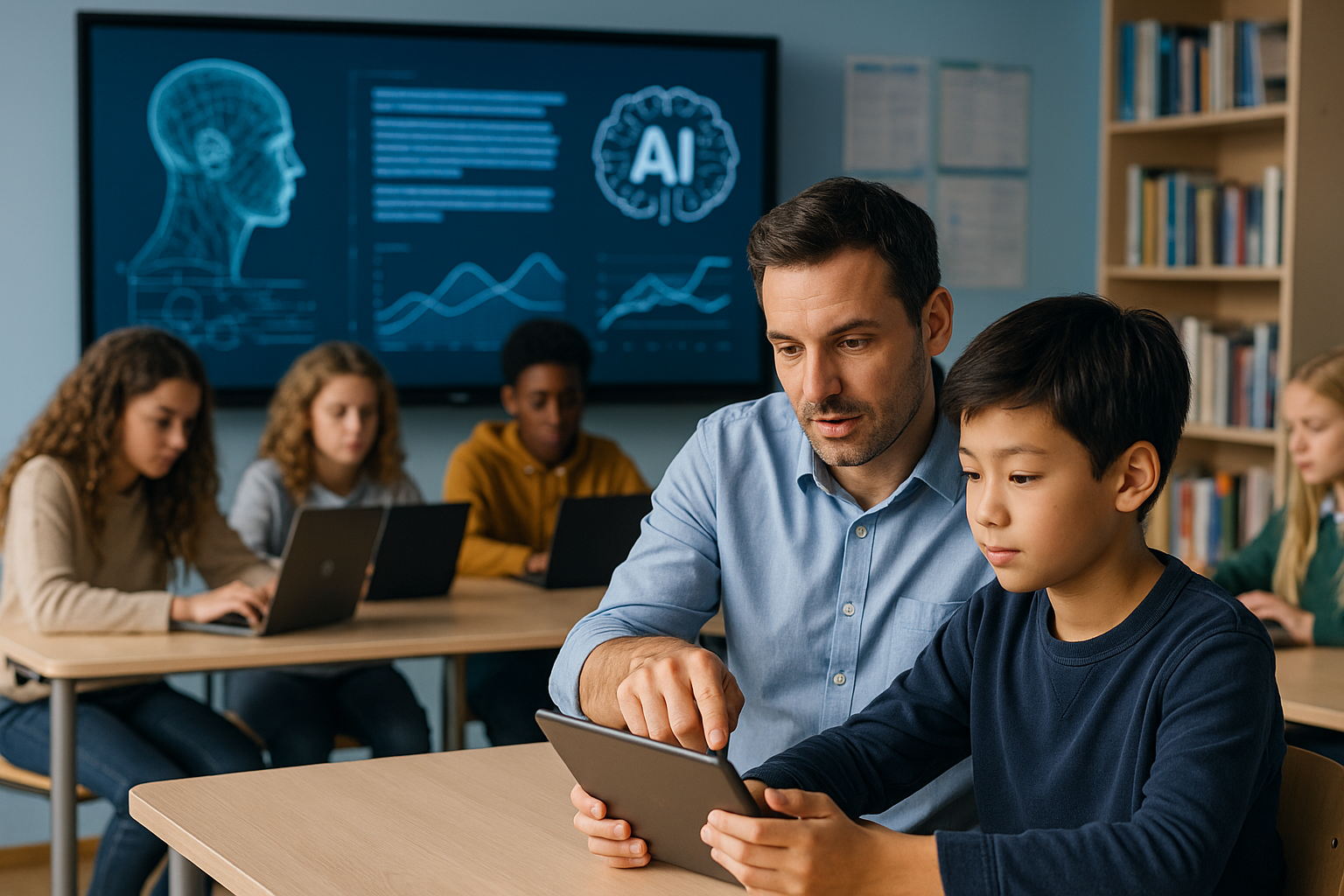Education 5.0: AI and personalized learning drive the future of learning
Education 4.0, driven largely by digital pedagogy and the integration of online platforms, was sufficient for the early 21st century but no longer meets the needs of learners shaped by hyper-connectivity and intelligent systems. Generation Alpha, those born between 2010 and 2024, are fundamentally different from previous generations, acquiring information in complex, dynamic ways and demanding new teaching approaches that merge human intelligence with advanced technological tools.

The rapid rise of artificial intelligence (AI) and immersive digital tools is reshaping the foundations of modern education, demanding urgent strategic reform to prepare Generation Alpha for a technology-driven future.
Researchers have mapped this educational shift in a study titled "Education Strategy for the Net Generation", published in Information. The paper calls for a complete overhaul of conventional teaching practices, outlining a new pedagogical model to align learning with the dynamic realities of the digital and generative AI eras.
The shift from digital to generative pedagogy
The research positions the evolution of education within a broad historical and technological framework, explaining how learning models must keep pace with societal and digital transformations. The authors describe how the transition from Web 2.0 to Web 4.0, combined with the rise of generative AI (GAI), large language models (LLMs), and immersive technologies like AR, VR, and IoT, has ushered education into a new era - Education 5.0.
Education 4.0, driven largely by digital pedagogy and the integration of online platforms, was sufficient for the early 21st century but no longer meets the needs of learners shaped by hyper-connectivity and intelligent systems. Generation Alpha, those born between 2010 and 2024, are fundamentally different from previous generations, acquiring information in complex, dynamic ways and demanding new teaching approaches that merge human intelligence with advanced technological tools. According to the authors, Education 5.0 is not just an incremental improvement; it represents a paradigm shift toward generative pedagogy, a hybrid system combining symbolic cognitive methods with AI-powered connectionist approaches.
This new framework emphasizes personalized learning paths, real-time feedback loops, and collaborative, interdisciplinary environments. Teachers, once positioned as transmitters of knowledge, must now act as mentors and interpreters, guiding students through the complexities of human–machine interaction. The model calls for cultivating not only cognitive skills but also emotional and ethical intelligence, ensuring that students remain critically aware and human-centered in a digital landscape increasingly mediated by AI.
Personalization, feedback, and collaboration in Education 5.0
Generative pedagogy harnesses the power of AI, machine learning, and big data to enhance the learning process. Adaptive platforms analyze student performance and behavior to create individualized learning experiences, ensuring that content delivery aligns with personal learning styles and needs. This hyper-personalization marks a significant departure from the one-size-fits-all approach that defined traditional education.
Real-time feedback has also emerged as a defining characteristic of Education 5.0. AI-powered systems, such as chatbots and smart tutors, are capable of instantly assessing student progress, providing immediate insights, and adjusting learning pathways in response to performance metrics. By integrating sensor technologies like eye-tracking and facial recognition, these systems can measure engagement and attention, offering educators actionable data to refine teaching methods and optimize outcomes.
Collaboration, a cornerstone of contemporary pedagogy, is also being transformed. The research highlights how digital platforms now enable interactive and collaborative learning spaces that transcend geographical barriers. These systems facilitate group discussions, joint projects, and peer-to-peer learning, fostering an environment where knowledge creation becomes a shared, participatory process. The integration of immersive technologies, such as extended reality and virtual environments, further supports active learning and deep engagement, ensuring students are not passive recipients of information but active co-creators of knowledge.
A case study within the research demonstrates how these concepts can be practically applied. In a vocational robotics program, students engaged in immersive digital classrooms that combined traditional teaching methods with VR-enhanced learning modules. The results were compelling: the experimental group outperformed the control group in task completion, demonstrated higher levels of motivation, and achieved better retention of complex concepts. This evidence reinforces the potential of generative pedagogy to enhance both technical proficiency and critical thinking in real-world educational settings.
Challenges, implications, and the road ahead
The study acknowledges significant resistance within educational institutions. Many educators remain skeptical, echoing earlier skepticism during the advent of digital tools, while others express concern over the reliability and ethical implications of AI systems. The rapid pace of technological evolution has also created a gap between industry capabilities and classroom realities, with schools often lagging behind in adopting and integrating cutting-edge innovations.
The authors argue that this resistance underscores the need for a balanced, critically informed approach to integrating AI into education. Generative AI, while powerful, is not infallible. It can produce errors, perpetuate biases, and generate misleading outputs, making critical engagement an essential component of modern learning. Students must be taught to treat AI as a partner rather than an unquestioned authority, applying rigorous sensemaking and analytical skills to every interaction.
The paper calls for redefining teachers' roles in a hybrid human–machine learning environment. They will no longer be the sole arbiters of knowledge but will function as co-navigators, helping students critically navigate AI-mediated information ecosystems. This shift requires educators to adopt reflective practices and maintain a commitment to pedagogical integrity, ensuring that technology enhances rather than diminishes the human essence of education.
- FIRST PUBLISHED IN:
- Devdiscourse










